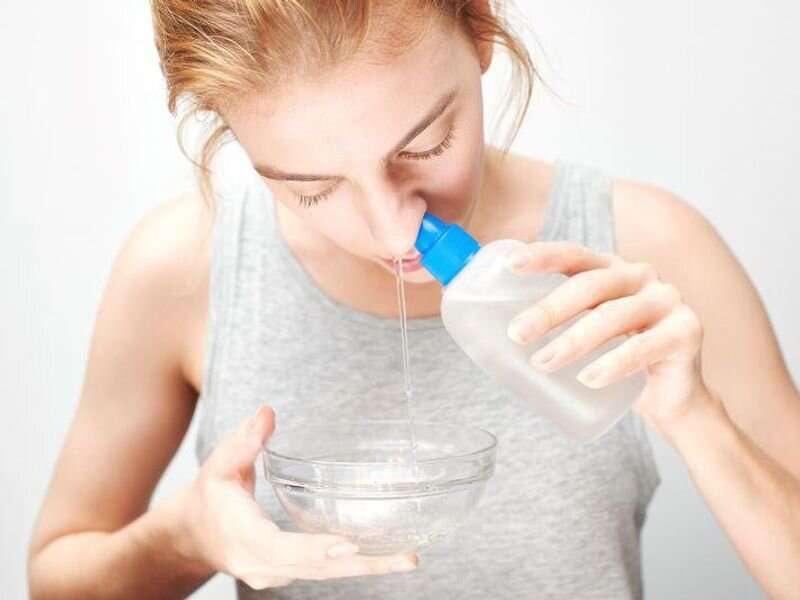
For patients with COVID-19-related olfactory dysfunction (OD), the clinical benefit of theophylline added to saline nasal irrigation (SNI) is inconclusive, according to a study published online July 7 in JAMA Otolaryngology-Head & Neck Surgery.
Shruti Gupta, M.D., from Washington University School of Medicine in St. Louis, and colleagues examined the efficacy and safety of theophylline versus placebo added to SNI for COVID-19-related OD in a phase 2 randomized clinical trial. Participants with OD persisting for three to 12 months following COVID-19 infection were recruited and randomly assigned to receive saline sinus rinse kits and bottles of identical-appearing capsules with either 400 mg of theophylline (treatment) or 500 mg of lactose powder (control; 26 and 25 patients, respectively).
The researchers found that at the end of treatment, at least slight improvement in the Clinical Global Impression Improvement scale was reported by 59 percent in the theophylline arm compared with 43 percent in the placebo arm. Between baseline and six weeks, the median difference in the University of Pennsylvania Smell Identification Test (UPSIT) change was 3.0 and 0.0 for participants in the theophylline and placebo arms, respectively; the change in UPSIT scores was not significantly different between the groups. A change of 4 or more points in UPSIT scores from baseline to six weeks occurred in 50 and 26 percent of participants in the theophylline and placebo arms, respectively.
Source: Read Full Article